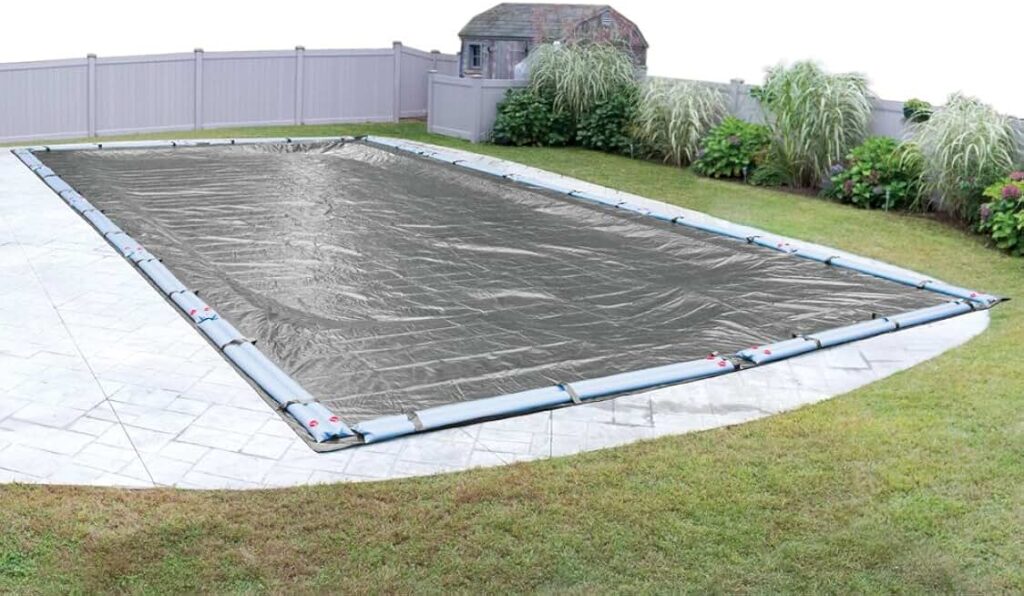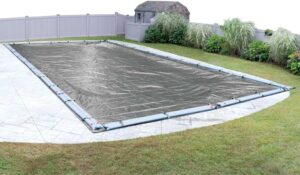
When summer comes to an end and the weather starts to cool, many pool owners begin thinking about closing their pools. Properly shutting down your pool for the season and covering it isn’t just about convenience — it’s about protecting your investment. If you’re wondering how much it costs to close and cover a pool, this guide will walk you through everything you need to know.
Closing a pool involves several steps, including cleaning, balancing the water chemistry, removing equipment, and adding winterizing chemicals. Covering it is just as important — a well-fitted cover keeps debris out, prevents accidents, and protects the pool structure.
Let’s dive into the costs and considerations involved in both processes.
What’s Included in Pool Closing?
Before we get to the actual numbers, it’s important to understand what pool closing typically includes. A standard closing service usually involves:
- Cleaning the pool (removing leaves, dirt, and debris)
- Balancing water chemicals (pH, chlorine, alkalinity)
- Draining water to the appropriate level
- Removing ladders, handrails, and accessories
- Blowing out and plugging plumbing lines to prevent freezing
- Adding winter chemicals to prevent algae growth
- Installing the pool cover securely
If you have additional features like heaters, waterfalls, or attached spas, expect some additional fees.
Average Cost to Close a Pool
The cost of closing a pool depends on the type of pool (in-ground or above-ground), its size, location, and whether you choose to hire a professional or do it yourself. On average:
- Above-ground pool closing: $125–$225
- In-ground pool closing: $200–$400
- With additional equipment: Add $50–$150
- Winter chemicals: $25–$75 (if not included)
Hiring a professional for Pool Cover Installation Service in Greensboro NC can add to the cost, but it often saves time and ensures everything is done correctly. Poorly closed pools can lead to damage, costly repairs, and algae issues in spring.
Cost of Pool Covers
Pool covers also come in various types and prices. Here’s a breakdown of the most common options:
- Tarp-style cover: $75–$300
- Mesh safety cover: $900–$1,500
- Solid safety cover: $1,000–$3,000
- Automatic pool cover: $5,000–$15,000
The right cover for you depends on your pool type, safety needs, and budget. Basic covers are suitable for above-ground pools, while in-ground pools often benefit from mesh or solid safety covers.
Factors That Affect the Cost
Several factors can influence how much you’ll pay to close and cover your pool:
- Pool Size – Larger pools need more chemicals, time, and bigger covers.
- Location – Prices may vary depending on local labor rates and climate.
- Type of Cover – Safety covers and automatic covers cost more but offer better protection.
- Condition of Pool – If your pool needs extra cleaning or chemical treatment, expect higher costs.
- DIY vs. Professional – Doing it yourself saves money but may not offer the same level of protection.
Hiring Experts Makes a Difference
While you can close and cover a pool yourself, many homeowners prefer hiring professionals to ensure it’s done right. Companies with experience in pool maintenance provide peace of mind — especially when dealing with large or complex pools.
A great example is Hydro Chemistry Pools & Spas, a well-established name trusted by many homeowners for seasonal pool care. Their team handles everything from chemical balancing to proper equipment removal and cover installation, helping pool owners avoid costly mistakes during the off-season.
DIY vs. Professional Service
If you’re considering doing it yourself, you’ll need the proper equipment and knowledge of your pool’s plumbing and chemistry. A mistake in winterizing your pool could lead to burst pipes, algae blooms, or staining.
Hiring a pro may cost more upfront, but it could save you hundreds in repair costs come spring. Moreover, professional services usually come with warranties or guarantees, adding an extra layer of security.
When to Close and Cover Your Pool
Timing is also crucial. The ideal time to close your pool is when the water temperature consistently stays below 60°F (15°C). At this temperature, algae growth slows down, and you can avoid chemical imbalances.
Closing your pool too early can lead to wasted chemicals and cleaning costs, while waiting too long can expose your pool to leaves, debris, and algae.
What Happens If You Don’t Cover Your Pool?
Leaving your pool open all winter might seem harmless, but it can lead to several issues:
- Debris buildup that’s hard to clean
- Algae growth requiring aggressive treatment
- Damaged liners or tiles due to freezing water
- Safety hazards for children and pets
A quality cover reduces these risks and protects your pool during the harsh winter months.
Long-Term Benefits of Proper Pool Closing
Closing and covering your pool properly is more than just seasonal maintenance — it helps extend your pool’s lifespan. It also reduces the work (and cost) needed to reopen your pool when the weather warms up again.
Conclusion
Closing and covering your pool is an important task that can cost anywhere from $200 to $1,500 or more, depending on the size of your pool, the type of cover, and whether you hire a professional. While DIY might be tempting, the long-term value of professional service is often well worth the price.
Think of it as an investment in your pool’s health and your peace of mind. From protecting against freeze damage to ensuring safety and cleanliness, proper closing sets your pool up for success come spring.
If you’re in Greensboro and want to ensure your pool is properly shut down, Hydro Chemistry Pools & Spas has become a go-to option for many locals — offering a dependable, detail-oriented approach to pool maintenance and seasonal care.





